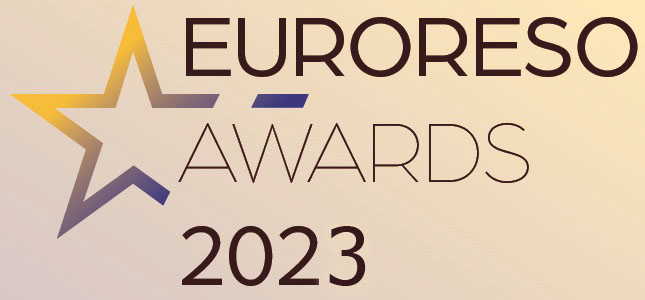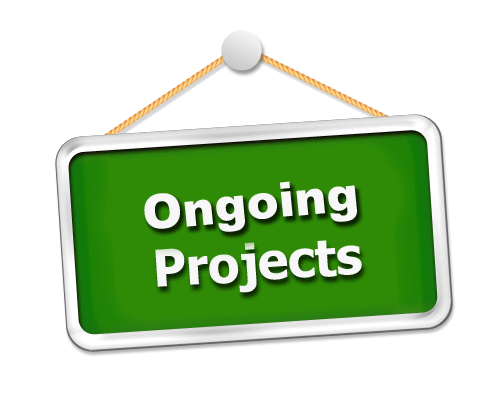WOMEN, WAR AND PEACE (WWP): ROLE OF WOMEN IN EUROPE FROM WW2 TO THE PRESENT AND THE POWER OF THE EU IN PROMOTING PEACE AND GENDER EQUALITY TODAY
SUMMARY
Women, War and Peace is a transnational project involving 4 European partners from Ireland, Spain, Germany and Poland exploring women’s experiences of World War 2 and the role of the EU today in promoting peace, gender equality, democracy and diversity.
The project marks the 70th anniversary of the ending of WW2 by using creative processes and on-line resources to promote a remembrance of European history with a focus on women’s experiences of WW2 and their journey within Europe from 1945 to today. Using theatre, film and political activism, this project raise awareness of the formation of the EU, it’s history and diversity and its role today in promoting peace, gender equality, cultural diversity and the well being of all its citizens equally.
The project brings different citizens together to explore a remembrance of WW2 and all those who died, the women of WW2 who actively campaigned against fascism and Nazism and promoted liberty; an understanding of what can lead to a rise of intolerance and totalitarianism and to raise awareness of how citizens can actively support integration and the role of the EU today in promoting peace and equality. Equality is a fundamental principle of the EU. However there is still more to be done and women’s rights are under attack from extremists around the world. There is a need to re-affirm a commitment to gender equality as a key component for democracy and peace. Women’s rights are rights that promote a position of legal and social equality of women with men. Women’s rights are an essential component of universal human rights. Women are powerful drivers of change and this transnational project remembers the role of women in Europe and power of the EU in promoting peace, democracy, human rights, and freedom of speech and gender equality for all.
The project results in the creation of a Research and Resource Pack available on-line; a Remembrance through Drama Workshop model; a performance (captured on video) called ‘Her story: Women, War, Peace’ presented to the public and followed by public debates and Legislative Theatre Sessions; a webinar event linking all four partner countries; social media campaigns and an on-line questionnaire; and a final two-day Transnational European Conference in Dublin. Key events are rolled out in each partner country bringing citizens, artists and activists together to discuss how we remember the past in relation to World War 2, asking what can ordinary citizens today do at local, national and international levels to prevent such atrocities form happening again and what role do citizens want the EU to play in promoting peace and equality for all. The aim is to know the past in order to move beyond it and to build a better future for all, raising awareness of European common values encouraging intercultural dialogue, peace and democracy. This project meets the general objectives of Europe for Citizens as the on-line Research and Resource Pack and multiplier public events all contribute to citizens understanding of the EU, its history and diversity by raising awareness of the effects of war in Europe and the formation of the EU and its role in promoting peace and gender equality with a specific focus on the role of women.
The project works with citizens, artists and activists at local, national and international levels including young people in schools and youth groups (minimum 3 youth groups per partner country); adults and older people; students; teachers; youth and social workers; community activists; Roma and Traveller communities; women, ethnic minority and people with disability groups; civil society organizations and the general public to promote a remembrance that focuses on peace with specific reference to women’s experiences of war. Equality of access is promoted by conducting outreach campaigns to target hard to reach groups. This project is accessible to all European citizens without any form of discrimination on grounds of sex, racial or ethnic origin, religion or belief, disability, age and sexual orientation. Also invited are leaders, public representatives, journalists and the media.
Objectives:
– In terms of specific objectives this project raises awareness of European remembrance, common history and values namely to promote peace and the well being of all citizens equally by reflecting on past and current events and by stimulating debate and interact amongst different groups and communities and by raising awareness of the role of the EU in promoting peace and cultural diversity.
– This project meets the key priority of reflecting on causes of totalitarian regimes by bringing people together in each partner country to explore through creative processes the causes and effects of war and to remember all those who died. A key priority is to connect the past history of conflict with developments in the EU on the 70th anniversary of WW2 with a view to bringing different communities together to actively support community integration and the role of the EU in promoting peace and equality. The project keeps memories of the past alive in order to move beyond past and build the future and carries out key activities that actively encourage tolerance, mutual understanding, intercultural dialogue and reconciliation as a means of moving beyond past and building an inclusive, peaceful and equal future for all.
– The project aims to raise awareness of remembrance including the 70th anniversary of the end of World War 2; to contribute to an understanding of the EU, it’s history and diversity; to foster European citizenship and improve conditions for civic and democratic participation at EU level; to raise awareness of the EU’s aim to promote peace, it’s values and the well-being of its people by stimulating debate, reflection and development of networks and to encourage democratic and civic participation of citizens at Union level by developing citizens’ understanding of the Union policy making-process and promoting opportunities for societal and intercultural engagement and volunteering at Union level.
Outputs:
- 16 People visit WW2 site and attend Preparatory Meeting in Dublin with Attendance Sheet, Photographs and Minutes of Meeting completed.
- Project Action Plan, Evaluation and Communications and Dissemination Strategies confirmed and implemented.
- Transnational Research and Resource Pack (PDf) made available on-line and delivered directly via email to 12,000 contacts – 3,000 per partner country – and containing 20 Women’s Stories (5 per country) from WW2 and the Holocaust, highlighting stories of those who campaigned against Nazism and Fascism; information on causes of totalitarianism and the rise of Fascism and Nazism; the history, ending and impact of WW2; creation of the Universal Declaration of Human Rights and founding of EU and its role today; EU common laws, policies and procedures for promoting peace, democracy, and gender equality; and information on role citizens can play within EU.
- Questionnaire developed and delivered on-line to identify what 100 citizens want from the EU in relation to the promotion of peace and gender equality and results collated and made available on-line.
- Two hour Remembrance through Drama Workshop designed that actively involves citizens in EU linked fun activities and promotes remembrance, debate and learning in relation to WW2 and the role of the EU today to promote peace, gender equality and cultural diversity.
- Performance Video created with stories from women’s experiences of WW2 and women active in European history that spoke out against totalitarianism or advocated for social including dissenters, suffragettes, freedom fighters, anti-war demonstrators, victims, soldiers, and pacifists.
- 500 citizens – 125 per partner country – take part in fun ‘Multiplier Events’ to promote remembrance, debate and learning in relation to women’s experiences of WW2 and the role of the EU today for promoting peace, democracy, gender equality and cultural diversity. Events include a Remembrance through Drama Workshops; a Live Performance or Screening of ‘Her Story: Women, War, Peace’ followed by a post-performance debate and Legislative Theatre Session to identify what people want in relation to laws for promoting peace and equality.
- 1 Webinar happening simultaneously in each partner country.
- 1 Facebook page, 1 YouTube channel and 4 Webpages set up.
- One Outreach Campaign conducted in each partner country with hard to reach groups.
- 1 E-Version Project Information Leaflet prepared and distributed on-line to 12,000 contacts – 3,000 per country.
- I International and 4 Social Media Campaigns conducted involving websites, Facebook, LinkedIn, Twitter and YouTube and reaching 20,000 – 5,000 per partner country.
- Final Project Material distributed via email and through social media to 12,000 contacts – 3,000 per country.
- Public representatives, politicians, EU representatives, journalists, media and citizens all attend events.
- EU support acknowledged on Project Materials including press releases; e-version Project Information Leaflet; Research and Resource Booklet (PDf e-version); on-line Questionnaire; Remembrance Through Drama Workshop Model; Video; and Final Report and Evaluation and all made available on-line via a dedicated page on each partner country website; on Facebook, LinkedIn, YouTube and distributed by email by each partner country to 12,000 in total; and sent to EU Commission websites, Official Journal of the EU, to journals, centres, academic and cultural institutions and media contacts; to EU officials/elected representatives and to EU Information Centres.
- Two Day Transnational Conference in Dublin consisting of 2 guest speakers, 4 workshops, 2 public debates, performances of ‘Her Story: Women, War, Peace’’ and attended by 100 including EU officials, elected representatives, 10 groups in Ireland including 3 hard to reach youth groups, general public and representatives from Germany, Spain and Poland.
- Final Report and Evaluation.
Outcomes:
- 616 Citizens actively involved in EU linked activities to promote remembrance, debate and learning on WW2 and the role of the EU to promote peace. Activities are ‘Remembrance Through Drama Workshop’; performance/screening of ‘Her Story: Women, War, Peace’; public discussions, debates, Legislative Theatre Session and Webinar linking 4 partner countries; and Transnational Conference in Dublin.
- By completing on-line questionnaire and taking part in events, participants have voices heard within EU in relation to promotion of peace and equality.
- Research and Resource pack promotes remembrance and a greater understanding of the causes of totalitarian regimes, and atrocities of the past linked to today’s need for developing a shared understanding of how EU membership can be used to promote cultural diversity and a respect for freedom, democracy, gender equality and human rights, all of which are a pre-requisite for peace, prosperity and the wellbeing of all EU citizens.
- Participants learn about European history and women who spoke out against totalitarianism and advocated for peace.
- Raised awareness of women’s experiences of WW2 and women’s voices equally heard.
- Intercultural dialogue and exchanges conducted as means of moving beyond past to build the future particularly amongst young people.
- 20,000 reached through Communications and Dissemination (1 International Media campaign; 4 Social Media Campaigns).
- On-going dissemination and availability of Final Report creates multiplier effect with access to project findings.
PARTNERSHIP
Smashing Times Theatre (Ireland) www.smashingtimes.ie coordinator
Instituto de Formación y Estudios Sociales – IFES (Spain) www.ifes.es
Gottfried Wilhelm Leibniz Universitaet Hannover (Germany) www.uni-hannover.de
Akademia Humanistyczno-Ekonomiczna w Lodzi (Poland) www.ahe.lodz.pl
Project lifetime:August 2015 – September 2016
This project is co-funded by the Europe for Citizens Programme of the European Union.


